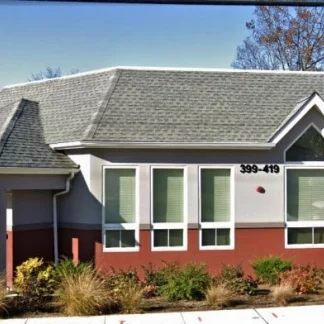Catholic Charities - Family Service Center
Catholic Charities - Family Service Center is a non-profit agency located in Mil...
Liberation Programs stands as a reputable behavioral health treatment center in Bridgeport, CT. It provides dual-diagnosis addiction treatment along well as community resources and education to adolescents, adults, and families.
Liberation Programs offers a diverse suite of services tailored to meet the varied needs of individuals and communities:
Understanding that recovery doesn’t always necessitate residential care, Liberation Programs offers outpatient services. These services, comprising counseling, therapy, and support groups, allow individuals to remain in their communities while receiving the support they need.
For those who benefit from a more structured environment, the residential services offer a nurturing setting where individuals can focus on their recovery. With 24-hour support and an array of therapeutic activities, residents can build a strong foundation for lasting sobriety.
Transitioning back to everyday life post-treatment can be challenging. Liberation Programs’ recovery housing initiative offers individuals a stable environment where they can continue to cultivate their recovery skills and prepare for independent living.
Believing that prevention is as crucial as treatment, Liberation Programs has developed a robust suite of prevention services. These initiatives aim to educate communities, support at-risk youth, and foster environments where substance misuse is less likely to take root.
Young individuals and families facing the challenges of substance misuse receive specialized support through family and youth services. From early intervention to counseling, these services are tailored to address the unique challenges faced by younger demographics.
Recognizing the efficacy of combining medication with therapeutic interventions, Liberation Programs offers medication-assisted treatment (MAT). This approach has proven to be especially effective for opioid and alcohol use disorders, reducing cravings and withdrawal symptoms.
Contact us for more information: (203) 384-9301

Connect with Liberation Programs by calling their admissions team directly.
(203) 384-9301 Website Get DirectionsThe Commission on Accreditation of Rehabilitation Facilities (CARF) is a non-profit organization that specifically accredits rehab organizations. Founded in 1966, CARF's, mission is to help service providers like rehab facilities maintain high standards of care.
CARF Accreditation: Yes
The Substance Abuse and Mental Health Services Administration (SAMHSA) is a branch of the U.S. Department of Health and Human Services. Established in 1992 by congress, SAMHSA's mission is to reduce the impact of substance abuse and mental illness on American's communities.
SAMHSA Listed: Yes
Group therapy is any therapeutic work that happens in a group (not one-on-one). There are a number of different group therapy modalities, including support groups, experiential therapy, psycho-education, and more. Group therapy involves treatment as well as processing interaction between group members.
In individual therapy, a patient meets one-on-one with a trained psychologist or counselor. Therapy is a pivotal part of effective substance abuse treatment, as it often covers root causes of addiction, including challenges faced by the patient in their social, family, and work/school life.
In individual therapy, a patient meets one-on-one with a trained psychologist or counselor. Therapy is a pivotal part of effective substance abuse treatment, as it often covers root causes of addiction, including challenges faced by the patient in their social, family, and work/school life.
Catholic Charities - Family Service Center is a non-profit agency located in Mil...
Fairfield Counseling Services Inc Psychiatric OP Clinic for Adults is a private ...
Recovery Network of Programs, in Bridgeport, Connecticut, is an outpatient drug ...
Fairfield Counseling Services – Outpatient is a private rehab located in Fairfie...